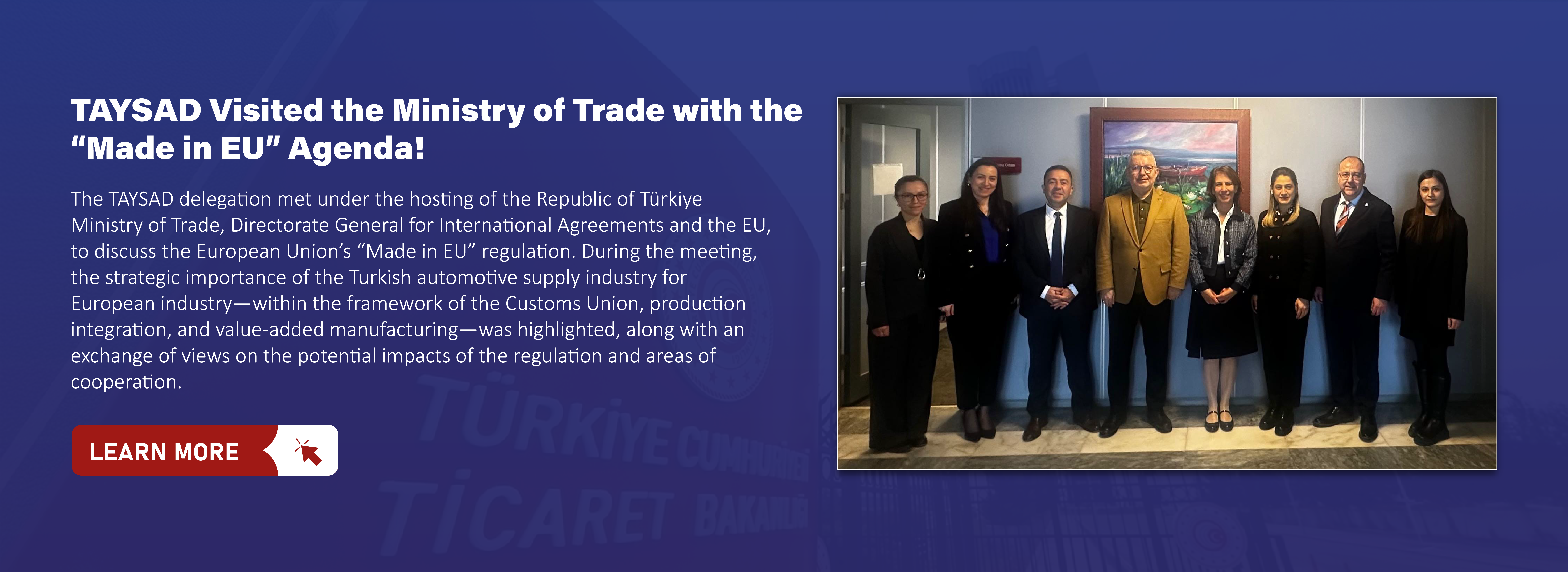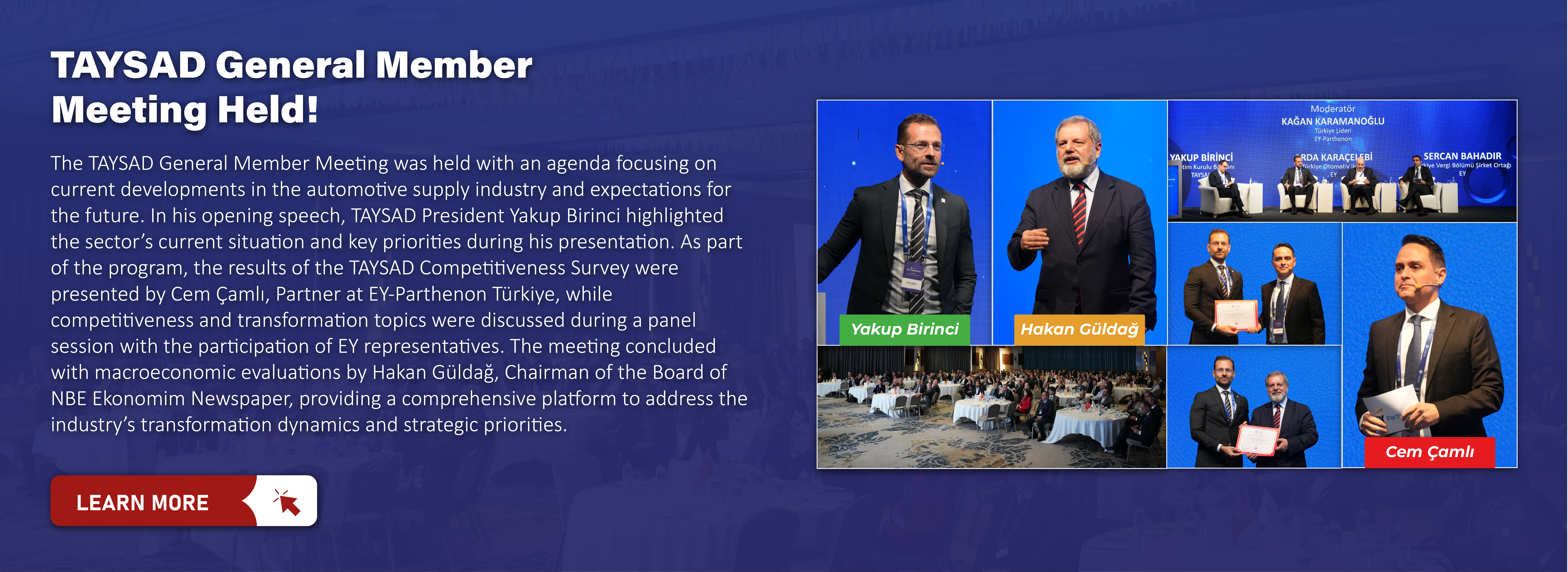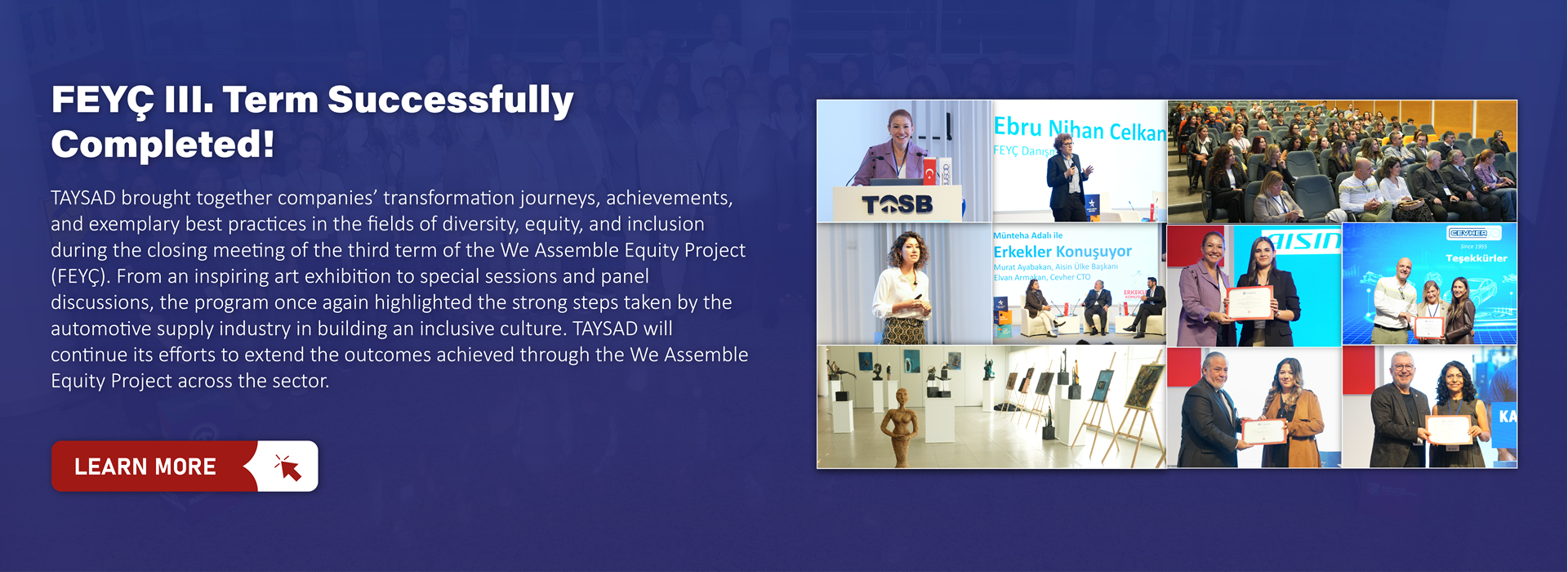
TAYSAD (Automotive Suppliers Association of Turkey) has been making effort to determine the effects of coronavirus (COVID-19) on the supply industry, the latest one being the third Coronavirus Impact Survey. The survey revealed the prospect of transitioning to normal work conditions with social distancing measures in the industry as of the week of May 4. Another finding was the expectation that the negative consequences of the pandemic would carry on for 2 to 3 months, echoing the views from the second survey. Most participants assume that the effects of the coronavirus will not end before July, while 76% of them expect more than 20% turnover loss due to the pandemic this year.
According to the survey, 65% of industry representatives pointed out to an upcoming cash crunch which could last three months or longer. To address the current problems, industrialists expect the government to extend the definition of force majeure to include the entire automotive supply industry; introduce an interest-free deferment for at least 6 months of loan repayments to public and private banks due in April, May, June and July; revoke additional limiting conditions for the KGF (credit guarantee fund) scheme and Turkish Eximbank loans and to introduce a “Short Time Work Allowance” triple the gross minimum wage.
As numerous industries around the globe come to a near standstill with the Coronavirus (COVID-19) pandemic, its impact persists on the supply chain of the automotive industry which employs more than 200 thousand people. TAYSAD (Automotive Suppliers Association of Turkey), the single representative of the automotive supply industry with nearly 460 members, has conducted the third Coronavirus Impact Survey to measure the effects of the pandemic on the industry as well as to propose solutions. TAYSAD completed the first survey on March 25, the second one on March 30 and the third one on April 29, revealing the changes the industry had gone through in 30 days. The latest survey showed the prospect of increased transition to normal work conditions as of May 4.
In the second survey conducted in early April, 73% of participants expected the impact of the pandemic to die out ahead of and throughout June; while this optimistic view dropped to 40% in the third survey. 76% of respondents predict more than 20% pandemic-related turnover loss, while 10% of respondents expect more than 40%. The survey revealed that 65% of the members anticipate cash crunch, with 70% of respondents thinking this problem will last three months or longer.
83% of industrialists apply for Short Time Work Allowance!
63% of the the supply industrialists who joined the first survey and 75% of those who joined the second revealed that they had applied for Short Time Work Allowance (SWA). The rate rose to 83% in the third survey, demonstrating the need to extend the SWA incentive period beyond three months. While 49% of applications to the allowance resulted positively, 51% of applicants have not yet received any response.
Manufacturing accelerates!
The survey demonstrates that more than 70% of TAYSAD members implement a part-time work model, while 23% of businesses will transition to normal work conditions with social distancing measures as of the week of May 4. The rate of businesses experiencing a complete standstill in manufacturing declined to 4%. The survey meanwhile revealed that in the week of May 11, complete standstill in manufacturing dropped to 3% and part-time working declined to 66%.
Rising production volume!
The survey signals a rise in production volume among companies implementing a part-time work model as well. Accordingly, the 39% weekly production rate between April 6 and 12 will gradually rise as of May 4 and will reach up to 60% by the end of May. 60% of the respondents expect that the effects of the pandemic will not end before July, while 26% anticipate a complete elimination of the impact after August.
Issues in loan structuring and cash collection!
22% of participants to the survey expressed issues in loan structuring in banks, while 34% have problems collecting receivables from vehicle manufacturers and global automotive suppliers. The survey also revealed that 60% of participants have certain demands from their customers, vehicle manufacturers, in order to solve current problems. They want a revocation of discount requests for 2020 and an early payment of product and die fees.
The survey demonstrates the industry’s expectations of support as well. To address the issues they face, the industrialists demand an interest-free deferment for at least 6 months of loan repayments to public and private banks due in April, May, June and July; revocation of additional limiting conditions for the KGF scheme and Turkish Eximbank loans and an extension of the scope of NACE codes in the supply industry. They also expect the incentive period for Short Time Work Allowance to go beyond three months and the allowance to triple the net amount of gross minimum wage rather than to increase by 1.5% in order for office employees to benefit from the incentive alongside manufacturing employees.





